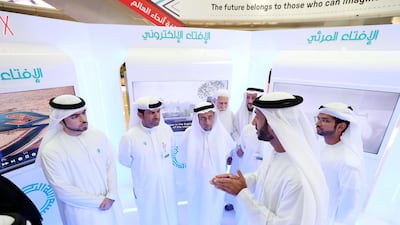Muslims can pay their zakat this year by donating meals or food parcels to help those in need.
In-kind contributions will help people who have lost their jobs, are on unpaid leave or have had salary cuts due to the Covid-19 outbreak, said Dubai’s Grand Mufti.
Zakat is a sustained payment calculated based on the payer’s annual income using a percentage.
It is not just a fundamental pillar of Islam but also a potential way of easing the suffering of millions of people through a sustained charitable effort.
And, this year, food donations are being encouraged to help those who cannot afford to buy essentials.
"Zakat can be paid to those affected by the current conditions in the form of food or meals as it fulfils one of the Sharia principles to help the needy,” said Dr Ahmed Al Haddad, Grand Mufti of Dubai and director of the fatwa department at the Islamic Affairs and Charitable Activities.
"Vulnerable communities are in critical need for food as [they] stay home during this unprecedented crisis.”
Muslims in the country have also been urged to pay their zakat earlier this year.
"This is an exceptional situation. People have suffered financial losses as businesses have been put on hold while they stay at home," Dr Al Haddad told The National.
"They are the ones who need food and essential commodities."
This week, the UAE Fatwa Council had also asked Muslims to pay their zakat “as quickly as possible” to help those suffering during the ongoing pandemic.
The fatwa to pay zakat early during a crisis is common and has been recognised by Muslim scholars throughout history, said Dr Al Haddad.
He cited an example of when Prophet Mohammed allowed his uncle Al Abbas to pay his zakat earlier to people in need during that time.
The Grand Mufti urged contributors to support the 10 million meals campaign that was launched on Sunday by Sheikh Mohammed bin Rashid, Vice President and Ruler of Dubai.
“As a part of this campaign, meals will reach those in dire need,” he said.
The 10 million meals campaign, the country’s biggest community campaign, was launched to ensure nobody sleeps hungry in the UAE.
Dr Al Haddad suggests people should assess the needs of the less fortunate and then help them.
“Is he in need of cooked meals? Or is he in need for Mir Ramadan – a basket containing home [food] essentials? If you are not sure, then give him cash,” he said.
The Grand Mufti also reminded Muslims that providing food to those fasting during Ramadan is rewarding.
Muslims believe that providing an iftar meal to a fasting person is rewarded with the same deeds as the one who is fasting.
"Providing meals this year fulfils the zakat. Feed those who are fasting and help the needy,” he said
“I call all to pray to God to get us out of crisis. The prayer of a fasting person is likely to be answered. We need God’s mercy."































